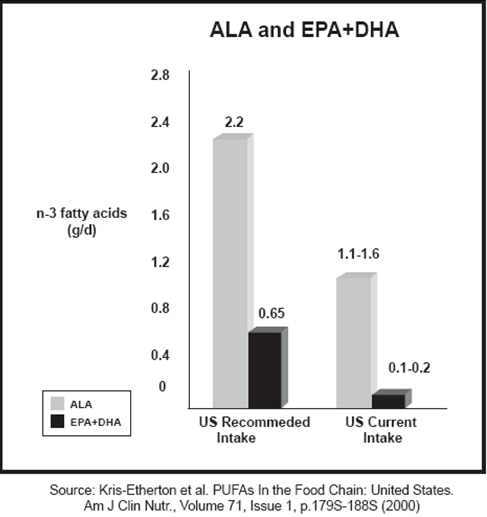What is DHA? Docosahexaenoic acid, an Omega-3 fatty acid found in fish and mother’s milk, is strongly tied to fetal brain development. DHA benefits brain in a few different ways, but most notably appears to slow the progression of age-related cognitive decline.
Bio-Activities:
- Building Block
- Neurotransmitter
DHA Benefits for Brain Health
Like PS, the Omega-3 fatty acid (also known as an essential fatty acid, or “EFA”) DHA is a primary building block of brain cells – especially during early childhood’s developmental stages. Studies suggest that infants who receive significant DHA from their mothers in the womb, after they are born and into early childhood have exhibited higher intelligence.As children grow, DHA benefits their mental focus and general academic performance.
- In one study, researchers found that children whose mothers took supplemental DHA scored significantly higher on mental processing than the children whose mothers took the placebo – leading researchers to conclude that mothers’ intake of Omega-3 fatty acids like DHA during pregnancy and while nursing may be favorable for later mental development of children.
As important as DHA benefits are for early brain development, it is also critically important for adults’ brain health. As DHA levels naturally decline in the brain with age, cognitive impairments escalate – suggesting DHA supplementation may help to reverse this cognitive decline.
Middle-aged people with regular intake of DHA tend to have a reduced risk of impaired cognitive function.
Moving into the golden years, experts have suggested that DHA benefits may include protective activities that may interfere with the progression of cognitive decline.
A study of elderly people found that those who ate DHA-rich fish or seafood regularly (once a week) had a distinctly reduced risk of developing cognitive impairment.
- Researchers concluded that Omega-3s, including DHA, may work against cognitive decline by both modulating brain inflammation and helping to regenerate neurons.
The problem, however, is that few Americans are getting the DHA – nor the Omega-3s ALA and EPA – they need to enjoy the brain health benefits these neuronutrients may offer:

DHA Supplements
DHA supplementation presents a potential solution to this universally low intake, providing the neuronutrient in a form that is more accessible, affordable, and pure than its main dietary source: fish. Cutting edge versions of DHA supplements are sometimes sourced from Calamari rather than fish; the squid has high concentrations of DHA.
Hallmark DHA Research: Research published in the Archives of Neurology in 2006 investigated DHA’s impact on brain health by tracking nearly 900 people over the course of nine years. At study’s end, the researchers concluded that subjects who had the highest DHA levels in their bodies enjoyed a 47% reduction in cognitive decline risk.
Bottom Line Brain Benefits: As a critical foundation nutrient for brain cell formation, DHA benefits for peak mental function starts while we’re in the womb and spans our entire lives.